Courses
Our courses meet all of the requirements set out by the Health and Safety Exectutive (HSE).
Emergency First Aid at Work (EFAW)
The EFAW course is designed to give learners the essential knowledge and practical skills needed to respond confidently to a range of first aid situations in the workplace. This course covers how to manage life-threatening conditions, treat minor injuries and illnesses, and provide effective, immediate care in an emergency — all in line with the requirements of the Health and Safety Executive (HSE) First Aid Regulations.
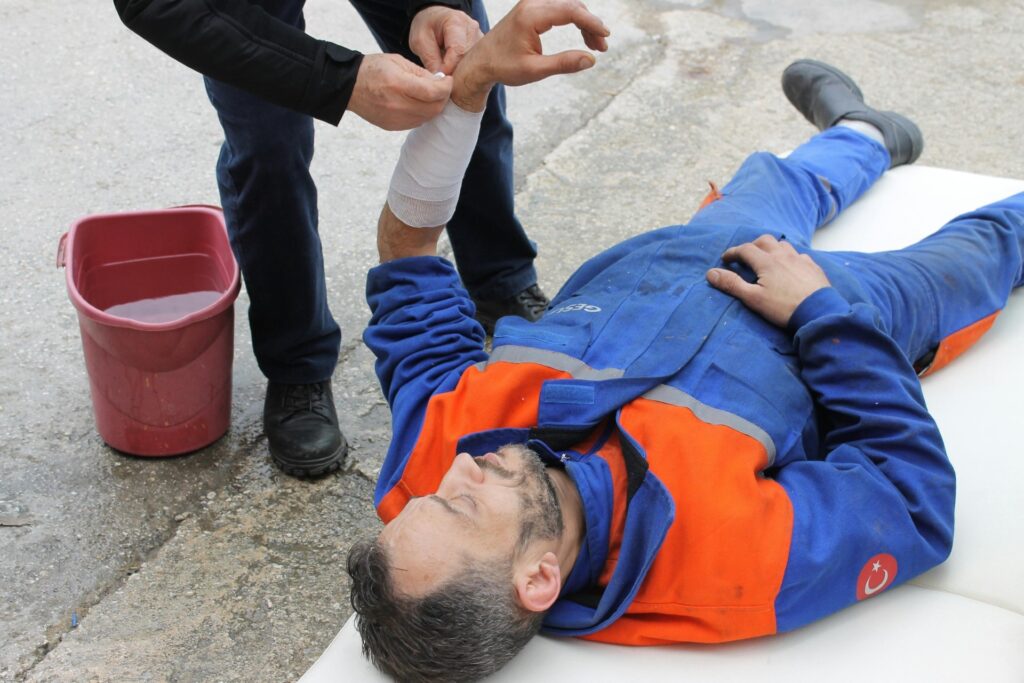
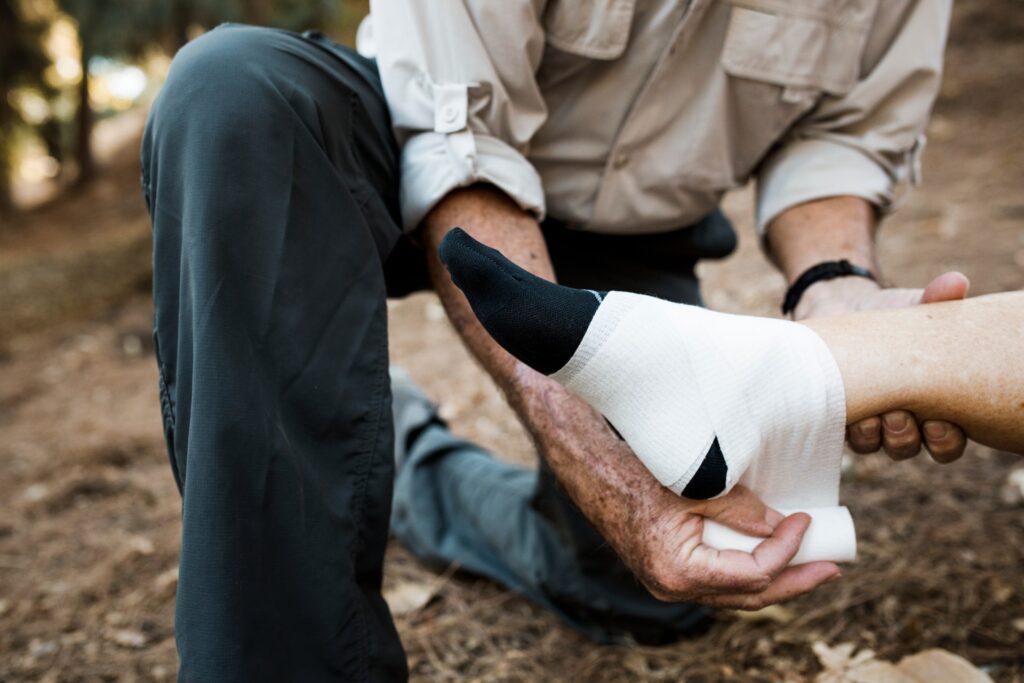
First Aid at Work (FAW)
The FAW course is a comprehensive training programme that provides learners with the knowledge and practical skills to handle a wide range of first aid situations in the workplace. Covering everything from life-threatening emergencies to minor injuries and illnesses, this course meets the full requirements of the Health and Safety Executive (HSE) and is ideal for higher-risk environments or those with larger staff teams.
Emergency First Aid for Schools
Tailored for the school environment, this course equips staff with the essential skills and confidence to manage first aid incidents involving both children and adults. It covers how to respond to life-threatening conditions and common school-based injuries, while meeting the HSE’s Emergency First Aid at Work standards, with additional emphasis on the unique needs of educational settings.


Emergency First Aid For Sports
Specifically designed for coaches, PE staff, and sports clubs, this course focuses on the types of injuries and emergencies commonly encountered in sporting environments. It provides practical, hands-on training to ensure a confident response to incidents like sprains, fractures, head injuries, and cardiac events, while also covering core emergency first aid skills.
Paediatric First Aid at Work (PFAW)
This in-depth course is designed for those working with babies and young children, particularly in early years settings. It covers a wide range of emergency scenarios, illnesses, and injuries affecting infants and children, in line with the requirements of the Early Years Foundation Stage (EYFS) framework and Ofsted registration.
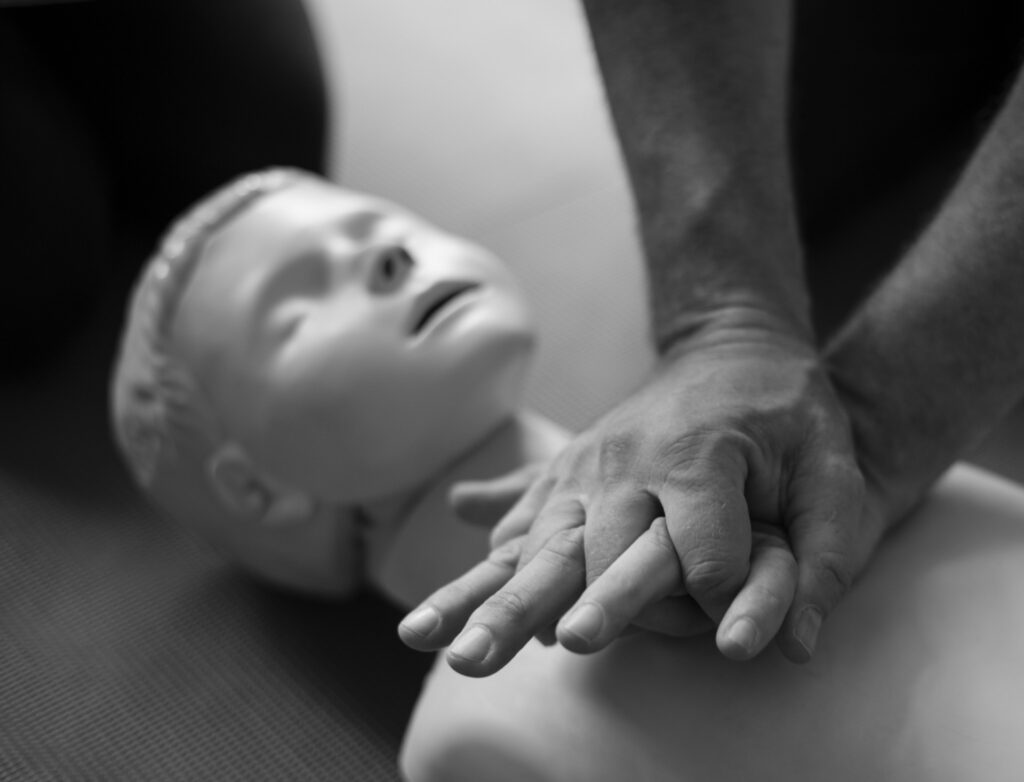

Emergency Paediatric First Aid at Work (EPFAW)
This 1-day course provides learners with the core skills needed to respond to emergency situations involving babies and children. Ideal for those who work with children but don’t need the full Paediatric First Aid qualification, it covers essential topics such as CPR, choking, bleeding, and how to respond to an unconscious child or infant. Emergency First Aid for Sports
Defibrillator & CPR
This short, focused course gives learners the vital skills needed to respond to cardiac arrest and other life-threatening situations. It includes hands-on training in CPR and the safe, effective use of an Automated External Defibrillator (AED), making it ideal for workplaces, community groups, or individuals who want to be prepared for emergencies.
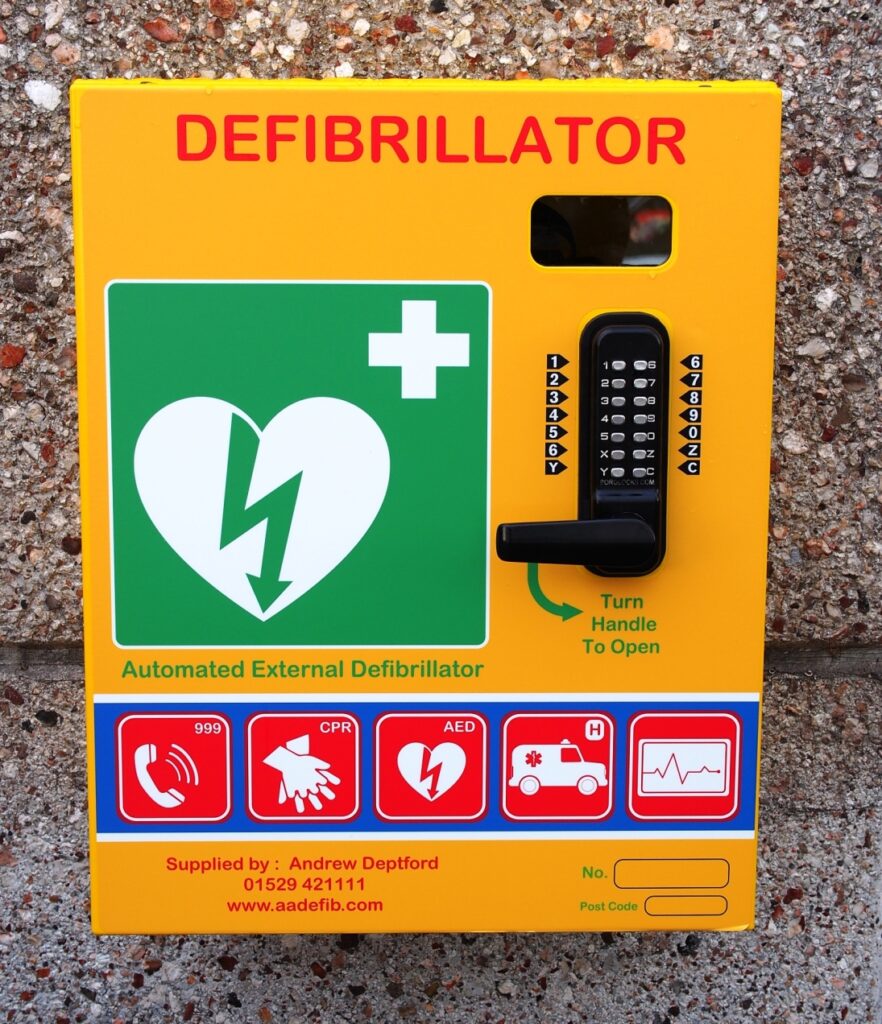

Mini First Aid
A fun and engaging introduction to first aid, this course is designed specifically for children. Using age-appropriate activities, it helps young learners understand how to get help, stay safe, and provide basic assistance in emergencies — all delivered in a friendly, confidence-building environment. Sessions can be adapted to meet the requirements of the National Curriculum.
Parent First Aid
This practical and reassuring course is designed for parents, carers, and anyone responsible for babies and young children. It covers how to respond to common childhood emergencies — including choking, burns, fevers, head injuries, and CPR for infants and children — giving you the confidence to act quickly and effectively when it matters most. Perfect for new parents or anyone wanting peace of mind at home.
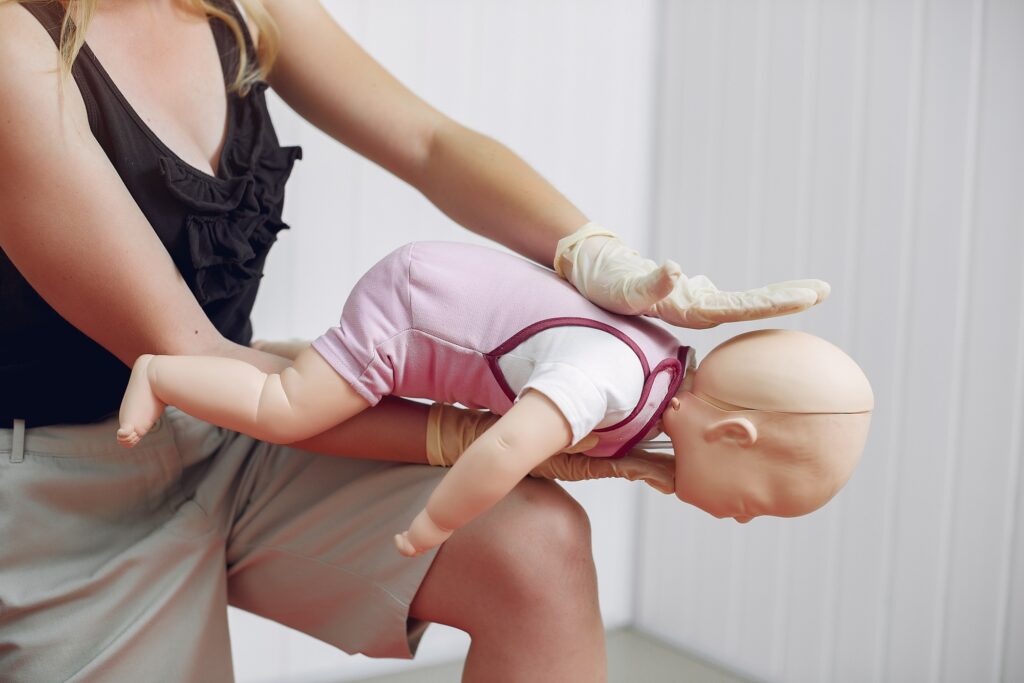

First Aid at Work Requalification
This 2 day classroom style course is for those that need to renew their full First Aid at Work Certificate. Please note that candidates attending this course must be in possession of a valid (not out of date by more than 28 days) First Aid at Work certificate.
Blended learning
Part face to face, part on-line.
Our most popular courses can be taught in a blended format reducing the time spent attending in-person training by up to 66%
